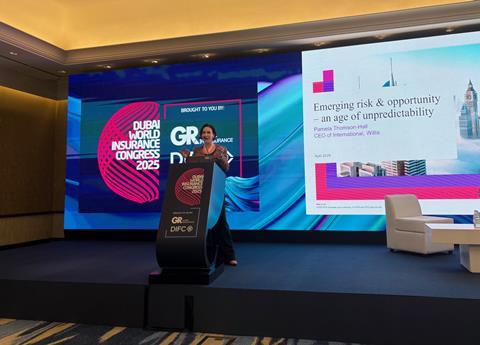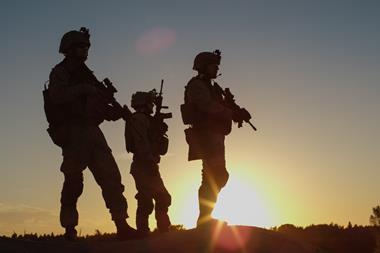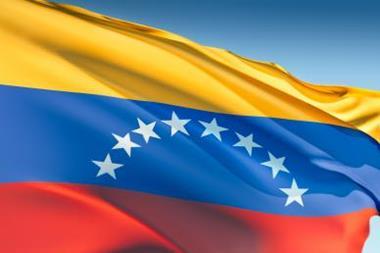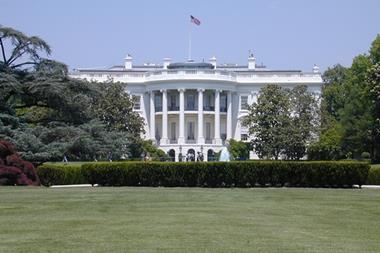When the Russia–Ukraine conflict erupted, WTW faced critical decisions about safeguarding staff, protecting clients, and maintaining its global reputation. Pamela Thomson-Hall reveals how the firm navigated the geopolitical crisis at pace, and the leadership lessons learned under fire.
When Russian forces invaded Ukraine in February 2022, global businesses faced an unpredictable operational landscape.
For WTW, the implications were immediate and personal. With longstanding offices and staff in both Russia and Ukraine, the company was forced to make rapid, high-stakes decisions—balancing client service, employee welfare, reputational risk, and legal compliance.

Pamela Thomson Hall, CEO of international and head of risk & broking international at WTW, said the firm quickly realised this was not a typical disruption: “On the 20th of February 2022, when Putin marched across the border of Ukraine, our own businesses in Russia and in Ukraine were under immense threat economically and the health and safety and welfare of our colleagues and their families and our clients became my number one priority.”
Managing competing priorities under pressure
WTW had spent 26 years building a thriving Russian business, staffed by a loyal workforce. As the crisis unfolded, safeguarding colleagues became the immediate focus.
Thomson Hall described the stark dual pressures: “Our Russian colleagues were terrified of what was to come for them personally… Our Ukrainian colleagues were terrified for their safety but stoically, in a very Ukrainian way, focused on sustaining our business to deliver outstanding client service at times when our clients needed it.”
Operationally, WTW moved quickly. Emergency support systems were activated including relocation programmes, financial assistance, and constant communication with staff. Simultaneously, the firm had to stay ahead of shifting international sanctions.
Despite initially being able to continue activities in Russia, market realities soon made a strategic exit inevitable.
As Thomson Hall put it: “Despite the fact that we were able to continue to trade legitimately… our trading partners would not have an appetite to move money around that had any Russian lenses. So overnight, almost, we were forced to close a very meaningful business for ourselves and say goodbye to those very loyal colleagues.”
Leadership lessons from a live crisis
Reflecting on WTW’s experience, Hall identified a series of critical lessons that enabled on how to navigate geopolitical turmoil effectively.
Firstly, agility and decisiveness proved essential. “We learned that agility and pace are critical in moments of such crisis. You have to trust your instinct when you’re running at a pace,” Thomson Hall explained.
Secondly, governance frameworks, not democracy, are essential during crises. Clear chains of authority, defined roles, and swift action replaced collaborative decision-making structures that might otherwise be too slow.
Expert advice also had to be leveraged strategically. Risk managers, sanctions specialists, and communications teams played central roles in shaping the firm’s response.
Stakeholder management became critical, given the diversity of parties involved, from employees and clients to regulators and business partners.
“It could be your shareholders, it could be your board, it could be your clients, it could be your colleagues. You need to manage the stakeholders,” Thomson Hall explained.
A deep understanding of local cultural dynamics was equally important. Decision-making had to reflect the realities on the ground, not assumptions from HQ. But above all, communication was treated as non-negotiable: clear, regular, and transparent messaging was key to maintaining trust internally and externally.
Key lessons from WTW’s Russia–Ukraine crisis response
- Act with agility and trust leadership instincts in fast-moving environments
- Implement clear governance — define decision-makers, avoid slow consensus models
- Leverage specialists in sanctions, risk, and communications
- Proactively manage stakeholders across shareholders, boards, clients and staff
- Respect cultural differences by engaging local teams
- Communicate clearly, frequently and transparently to maintain trust
- Embed horizon scanning and geopolitical scenario planning into operations
- Accept that no business is immune: preparation must replace complacency
Building future resilience
The Russia–Ukraine conflict has fundamentally reshaped how WTW views political risk management, with a renewed focus on strengthening horizon scanning, scenario planning, and crisis leadership development.
Thomson Hall said one of the most important takeaways was the necessity of embedding crisis thinking into everyday leadership, not just reacting when the unexpected strikes.
She concluded: “Preparation, preparation, preparation… thinking it won’t happen to you is not an option. Taking away the mentality of ‘that’s not for us’ is critically important.”














No comments yet